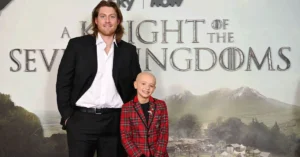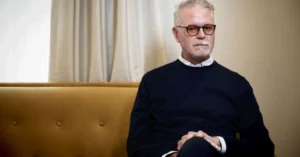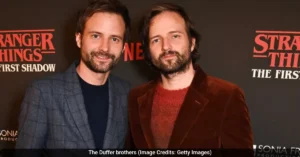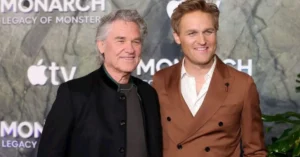Two of television’s most powerful characters, Homelander from The Boys and Eleven from Stranger Things, share a shocking beginning. Both were raised in cold, sterile laboratories where they were treated as test subjects and weapons, not children. Despite these identical origins, one grew into a narcissistic tyrant, while the other became a determined protector. Their stories show that even the most controlled start in life doesn’t have to decide your destiny.
The Making of a Weapon
Homelander’s first memories were of a lab where he was observed like an animal. He was never held by a mother or comforted by a father. His caretakers were scientists who measured his strength and aggression, focusing only on developing him as a product. He was put through painful experiments and strict mental conditioning, all while being manipulated into craving the approval of the very people who abused him. This upbringing taught him that power was everything and that love was a performance.
In The Boys, power is corporate. Vought International creates “supes” through Compound V, treating extraordinary abilities as a product to be sold. Homelander is the ultimate advertisement—the perfect smile and unstoppable force presented as the dream soldier. His strength isn’t a wonder to explore but a brand to be weaponized. Without real affection, he grew up feeding on applause and fear, desperate to be seen but unable to form genuine connections.
The Fight to Reclaim Humanity
Eleven’s early years at Hawkins Lab were also defined by isolation and cruel experimentation. She was tested, punished, and used to explore the limits of her psychic abilities. However, even inside those walls, small signs of humanity slipped through. She experienced whispers from her mother and fleeting kindness from staff. Her powers were treated as something partly scientific and partly wild, something she had to learn to understand rather than a tool marketed to the masses.
Unlike Homelander, Eleven eventually found love and friendship. After her escape, she was found by Mike Wheeler, Lucas Sinclair, and Dustin Henderson. Mike offered her trust and warmth, and Chief Jim Hopper became a flawed but fiercely protective father figure. These relationships didn’t erase her trauma, but they gave her a reason to resist becoming the weapon the lab tried to create. She was shown that adults could love without exploitation and that she could belong somewhere.
The Power of Connection
The most defining difference between the two lies in the human connections they made—or in Homelander’s case, the connections he never had.
Homelander never received authentic affection. Vought gave him fame instead of love, teaching him to mistake public applause for genuine care. His adult life became a hollow quest for worship, a constant search for validation that curdled into cruelty whenever his image was threatened. He sees non-supes as “mud people” and takes joy in using his power to do whatever he wants.
Eleven, in contrast, was saved by her connections. Her bonds with Mike, Hopper, and her friends gave her a family and a home. She learned the value of protecting others, even when it cost her dearly. Her famous mantra, “Friends don’t lie,” underscores how she built her identity on trust and loyalty, concepts completely foreign to Homelander.
Society’s Role in Shaping a Person
Neither character exists in a vacuum, and the worlds they live in rewarded them for very different things.
Homelander’s world rewards domination. The media turns him into a symbol of national pride, and politics weaponizes his image. With no one to hold him accountable and every incentive to maintain power, he grows more dangerous as the public hands him permission to do anything. Society feeds his ego and empowers his worst impulses.
Eleven faces the opposite. She is feared, hunted, and forced to hide. This adversity, however, created space for real loyalty to form. Her battles aren’t publicized for profit; they are fought in the shadows to protect her friends and her town. Society doesn’t hand her a throne; it forces her to earn her belonging, and in doing so, she learns an empathy that Homelander never had a chance to develop.
The Choice Within the Scars
While trauma explains much of their backgrounds, it doesn’t remove their agency. Both characters made active choices that defined who they became.
Homelander consistently chooses to dominate and destroy. He could have sought truth or connection, but he builds his life on fear and control. His iconic catchphrase, “I can do whatever the f*ck I want,” perfectly captures his philosophy. He is a narcissistic tyrant who thrives on adoration and fear.
Eleven consistently chooses to protect, even when she is scared and wounded. She runs, fights, and returns because she wants the people around her to live free. She has faced down otherworldly monsters and closed gates to other dimensions to save her town. Her story is one of sacrifice for the greater good.
Beyond The Lab
Stories of children created or altered in laboratories are a common theme in science fiction, and they almost always challenge the idea that origin alone shapes destiny.
For example, X-23 from Marvel comics was cloned from Wolverine and raised to be a weapon. Her escape and slow fight to claim her own identity show how conditioning can be broken. River Tam in Firefly was trained and manipulated, yet she fought to regain her selfhood and connection with her crew.
Even within Stranger Things, other test subjects like Two illustrate how shared trauma can lead somewhere entirely different. Where Eleven seeks connection, Two turns to anger and revenge, proving that survival does not automatically lead to empathy.
These characters widen the conversation started by Homelander and Eleven. Laboratory origins can produce monsters, rebels, protectors, or visionaries. What is imposed at birth may shape someone, but it never fixes who they have to be.
Also Read: The Boys Team Promises Explosive Final Season and Homelander’s Inner Struggles




























